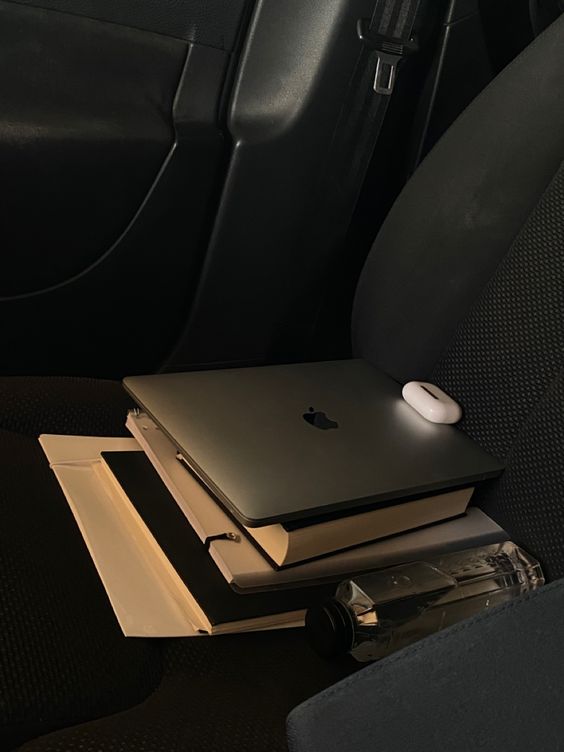How to Start an Online Boutique Legally
Starting an online boutique can be a fulfilling way to turn your passion for fashion and retail into a profitable business. However, beyond choosing your products and designing your website, one critical step is ensuring your boutique operates legally. Understanding the legal requirements protects your business, avoids penalties, and sets you up for long-term success.
In this article, we’ll walk you through how to start an online boutique legally, from business registration to compliance with tax laws.
Why Focus on Legal Compliance?
Many entrepreneurs overlook legal requirements when starting an online business, assuming the digital space has fewer regulations. However, the legal framework for online businesses is as rigorous as for physical stores.
Key benefits of legal compliance include:
- Protecting your business assets.
- Building trust with customers.
- Avoiding fines or lawsuits.
By learning how to start an online boutique legally, you can confidently launch and grow your business without legal troubles.
1. Choose a Business Structure
Your first step in learning how to start an online boutique legally is deciding on your business structure. Your choice impacts your taxes, liability, and registration requirements.
Common Business Structures
- Sole Proprietorship: Simple to set up, but you’re personally liable for business debts.
- Partnership: Suitable for businesses with multiple owners; liability is shared.
- Limited Liability Company (LLC): Offers liability protection while maintaining flexibility.
- Corporation: Ideal for larger businesses but involves more paperwork and costs.
For most online boutique owners, an LLC is a popular choice because it protects personal assets while being easy to manage.
Tip: Consult a lawyer or accountant to choose the structure that best suits your goals.
2. Register Your Business
The next step in how to start an online boutique legally – is registration itself. Once you’ve chosen your structure, register your business with the appropriate authorities.
Steps to Register Your Business
- Choose a business name that reflects your brand and is unique in your state.
- Conduct a search to ensure your chosen name isn’t already in use.
- Register your business name with your state government.
Some states may require you to file a Doing Business As (DBA) name if your boutique operates under a name different from your own.
3. Obtain an EIN (Employer Identification Number)
An Employer Identification Number (EIN) is a unique identifier for your business, issued by the IRS. While not all small businesses need an EIN, it’s required if you:
- Hire employees.
- Operate as an LLC or corporation.
- Plan to open a business bank account.
You can apply for an EIN for free on the IRS website.
4. Get the Necessary Licenses and Permits
Operating your online boutique legally requires specific licenses and permits, which vary by location and industry.
Common Requirements
- Business License: Grants permission to operate in your city or state.
- Seller’s Permit: Required in most states if you sell taxable goods.
- Home Occupation Permit: Necessary if you’re running your boutique from home.
Tip: Check with your state and local government offices to determine what permits apply to your business.
5. Comply with Tax Laws
Taxes are an essential part of learning how to start an online boutique legally. Failing to comply with tax laws can lead to severe penalties.
Key Tax Considerations
- Sales Tax: If your state charges sales tax, you must collect it from customers and remit it to the state.
- Income Tax: Report your business income when filing your personal or corporate taxes.
- Self-Employment Tax: As a business owner, you’re responsible for Social Security and Medicare taxes.
Use accounting software or consult with a tax professional to ensure compliance and streamline tax reporting.
6. Open a Business Bank Account
Separating your personal and business finances is critical for legal and practical reasons. A business bank account simplifies accounting, makes tax filing easier, and protects your personal assets in case of legal disputes.
Documents Needed to Open a Business Bank Account
- Business registration certificate.
- EIN (if applicable).
- Operating agreement (for LLCs or partnerships).
Having a dedicated account also makes your boutique look more professional to customers and suppliers.
7. Protect Your Brand
Your boutique’s name, logo, and other branding elements are valuable assets. Protecting them legally ensures no one else can use them.
Steps to Protect Your Brand
- Trademark Your Name and Logo: Register with the U.S. Patent and Trademark Office (USPTO) to secure exclusive rights.
- Copyright Your Content: Protect photos, product descriptions, and other original materials on your website.
- Domain Name Registration: Purchase your website domain to secure your online identity.
8. Ensure Compliance with Online Business Laws
Operating an online boutique means you must comply with specific e-commerce regulations.
Key Compliance Areas
- Privacy Policies: Clearly outline how customer data is collected, stored, and used.
- Terms and Conditions: Specify the rules for using your website, including return policies.
- ADA Compliance: Ensure your website is accessible to people with disabilities.
Many website builders, like Shopify or Wix, offer templates to help you include these policies.
9. Source Your Products Legally
Whether you’re manufacturing your own items or reselling products, ensure your sourcing methods comply with the law.
Best Practices
- Work with reliable suppliers and verify their legitimacy.
- Use contracts to define terms and protect your business relationships.
- Follow import/export regulations if sourcing internationally.
Staying transparent and ethical in your sourcing builds customer trust and keeps your business legally sound.
10. Get Business Insurance
Business insurance protects your boutique from unexpected risks, such as lawsuits, property damage, or cyberattacks.
Types of Insurance to Consider
- General Liability Insurance: Covers legal claims related to accidents or injuries.
- Product Liability Insurance: Protects against claims related to defective products.
- Cyber Liability Insurance: Covers data breaches or cyberattacks.
Shop around for policies that meet your boutique’s specific needs.
11. Start Marketing Legally
Marketing is essential to growing your boutique, but it must also comply with advertising laws.
Legal Marketing Practices
- Avoid false or misleading claims about your products.
- Comply with email marketing laws, such as CAN-SPAM Act regulations.
- Use royalty-free or licensed images and music in your promotions.
Investing in ethical marketing strategies not only keeps you compliant but also enhances your brand’s reputation.
Final Thoughts
Learning how to start an online boutique legally is a crucial step in building a successful and sustainable business. From registering your business to complying with tax laws and protecting your brand, legal compliance ensures you’re setting your boutique up for long-term success.
While the process might seem overwhelming, breaking it into manageable steps makes it achievable. Don’t hesitate to seek advice from legal and financial professionals to navigate complex requirements.
Starting an online boutique legally not only protects you from penalties but also builds trust with customers and partners, positioning you as a professional and credible business owner.
Ready to get started? Begin by choosing your business structure, and take the next step toward launching your dream boutique!




![Top 25+ Elder Care Business Opportunities [Updated 2025] Top 10 Elder Care Business Opportunities](https://businessher.com/wp-content/uploads/2025/01/1b416bb2f666673524a40ab7f587ec5c-150x150.jpg)













Post Comment